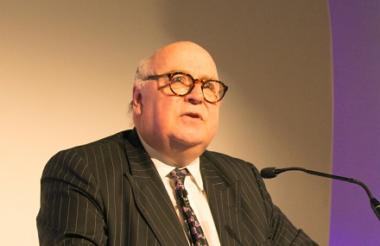The chief executive of NCVO has warned that charities which pay low salaries must take care that their employees are not ‘exploited’, in a speech at his organisation’s annual conference.
Sir Stuart Etherington used his annual state of the sector address to highlight the value charities have to the country, but also to warn about challenges they face.
One of those challenges was the level of low pay in charities, which are less likely than either the public or private sectors to pay the living wage. He said the problem was largest among those charities delivering government contracts.
“Our fantastic social care charities are struggling to pay the real living wage under the current contracting regime,” he said. “Even the likes of Serco are losing millions of pounds. So we should also be asking questions about low pay and how we ensure that employees are not exploited in the name of charity.”
Volunteering
Etherington also talked about the need to grow a culture of volunteering in the UK.
“We can do more to champion volunteering and charities. We can do more to help people understand how we work. And we can do more to make the case that a vibrant and engaged sector is the best way to strengthen modern Britain.
“I am especially keen that we clearly articulate the benefits of people getting involved as active citizens and volunteers. I think that we are pushing at an open door here: people want to get involved. We are increasingly aware that it benefits our wellbeing, both as individuals and collectively as a society.”
Etherington also said that he had been disappointed to see the government drop a proposal to give employees time off to volunteer. He said the "business lobby" had played a role in blocking the scheme and he would like to see it back on the agenda.
The scheme would have moved charity volunteering towards the position of school governors and magistrates. People in these roles have a statutory right to time off to fulfill these duties.
Safeguarding issues
Etherington also said that the sector has faced a “difficult and intense” period of questioning over its values.
“Our moral legitimacy and leadership as charities has been questioned,” he said. “Does the way that we conduct ourselves while at work fit with the values that we share with our supporters? Have we put reputation and branding above serving our beneficiaries? Are we more interested in winning contracts than reducing dependence on our services?
“To add to the challenge of whether we are trustworthy, our basic competency in matters of safeguarding has also been brought into question.
“These questions go to the very heart of our existence. But we have not shied away from difficult questions in the past, and we will not do so now.”
Etherington said that as part of a drive to tackle issues with safeguarding, he has asked Dame Mary Marsh, former chief executive of NSPCC, to lead the development of a new code of conduct for the voluntary sector, which every charity could follow.
“We want this to work for every organisation whether you are in social care, arts and heritage, international development or conservation,” he said. “We want to make it clear to everyone that we take these issues seriously and that we aim for the highest possible standards. The cost of failure is simply too high.”
|
Related articles











